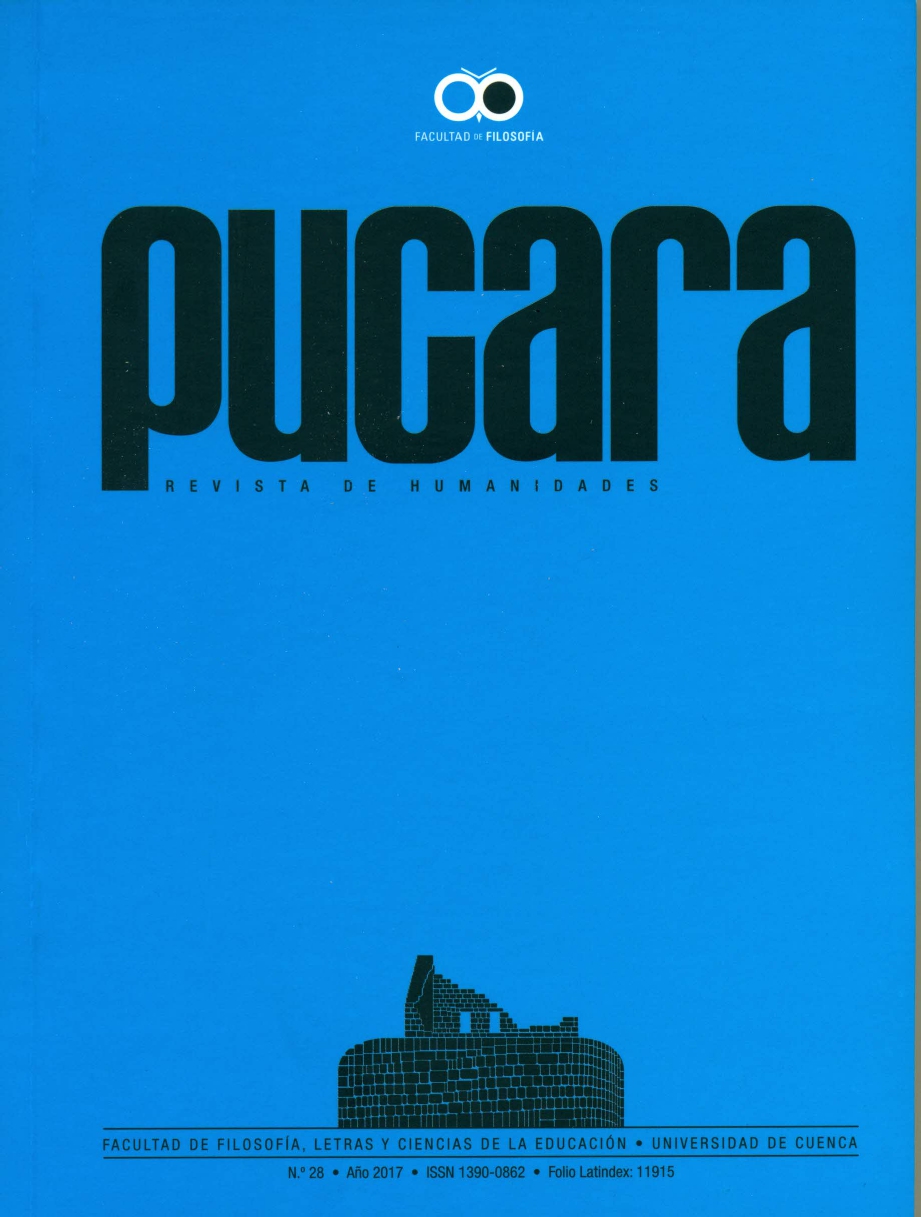Woman, confinement and virtue: the continuity of colonial paradigms in the Republican era
DOI:
https://doi.org/10.18537/puc.28.04Keywords:
history of women, Mariana de Jesus, recollection, honoAbstract
In the Hispanic world, the life of women has been determined by the idea of honor and sexual purity as an important element from the Colonial life. This element was relevant after independence and liberalism too. Therefore, in the first Ecuadorian Republic, during the nineteenth century and early twentieth centuries, the model of feminine holiness extolled the virginity above the social ideal of the married woman and mother, more common in the everyday life. This essay analyzes the historical and social network and the economic and cultural implications of the constitution of the canon of female sanctity on the nineteenth century. The enssay compares three different periods: European Feudalism, the Colonia in Audiencia de Quito and the Liberalism in the Ecuadorian Republic.
Downloads
References
Ayala Mora, E. (1980). Política y sociedad en el Ecuador Republicano 1830-1980. En Política y sociedad. Ecuador 1830-1980 (págs. 11- 31). Quito: Corporación Editora Nacional.
Balestrino, G. (2010). Erotismo, honor y honra en el Domine Lucas de Lope de Vega. Entre cielos e infiernos. Memoria del V Encuentro Internacional sobre Barroco (págs. 351-356). La Paz: Fundación Visión Cultural.
Borja Gómez, J. (2010). El purgatorio y la mística en el Nuevo Reino de Granada. Entre cielos e infiernos. Memoria del V Encuentro Internacional sobre Barroco (págs. 155-166). La Paz: Fundación Visión Cultural.
Burns, K. (2002). Beatas, “decencia” y poder. Incas e indios cristianos. Elites indígenas e identidades cristianas en los Andes coloniales. Centro de Estudios Regionales Andinos Bartolomé de las Casas, Instituto Francés de Estudios Andinos y Asociación Kuraca, 121- 134.
Echeverría, B. (2011). La modernidad de lo barroco. México: Ediciones Era.
Espinosa, C. (2013). Poder pastoral, acomodo y territorialidad. Procesos, 9-31.
Federici, S. (2004). Calibán y la bruja. Mujeres, cuerpo y la acumulación originaria. Madrid: Traficantes de Sueños.
Foucault, M. (2006). Seguridad, territorio, población. Curso en el Collége de France (1977-1978). Buenos Aires: Fondo de Cultura Económica.
Gauderman, K. (2003). Women’s Lives in Colonial Quito: Gender, Law, and Economy in Spanish America. Austin: Texas University Press.
Kempis, T. (1995). La imitación a Cristo (Séptima edición ed.). (G. Vietti, Trad.) Bogotá: San Pablo.
Larson, B. (1983). Explotación agraria y resistencia campesina. Cinco ensayos históricos sobre Cochabamba (Siglos XVI-XIX). Editorial Ceres, 1-46.
Van Deusen, N. (2007). Entre lo sagrado y lo mundano: la práctica institucional y cultural del recogimiento en la Lima virreinal. Lima: Pontificia Universidad Católica del Perú-IFEA.
Osorio, A. (2008). Inventing Lima: Baroque Modernity in Peru’s South Sea Metropolis. Hampshire: Palgrave Press.
Published
How to Cite
Issue
Section
License
Copyright (c) 2017 Tannia Rodríguez R.

This work is licensed under a Creative Commons Attribution-NonCommercial-ShareAlike 4.0 International License.
Copyright © Autors.

You are free to:
 |
Share — copy and redistribute the material in any medium or format |
 |
Adapt — remix, transform, and build upon the material for any purpose, even commercially. |
Under the following conditions:
 |
Attribution — You must give appropriate credit, provide a link to the licence, and indicate if changes were made. You may do so in any reasonable manner, but not in any way that suggests the licenser endorses you or your use. |
| NonCommercial — You may not use the material for commercial purposes. | |
| ShareAlike — If you remix, transform, or build upon the material, you must distribute your contributions under the same license as the original. |
| No additional restrictions — You may not apply legal terms or technological measures that legally restrict others from doing anything the licence permits. |












